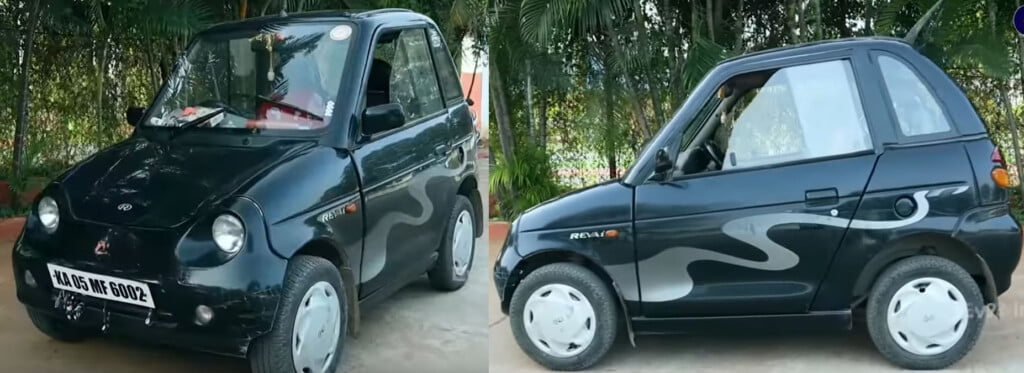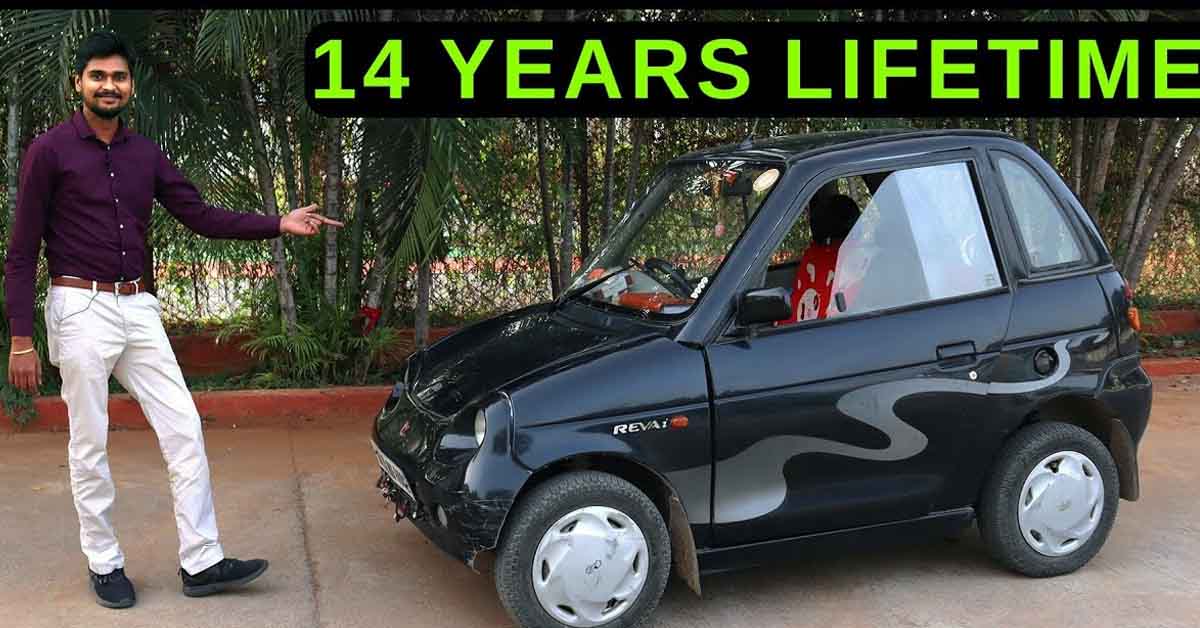So many electric cars and hybrids are now entering the Indian market. However, more than a decade ago, there was only Reva.
Reva is India’s first electric car. At just 3.7 lakh rupees, it is also the cheapest Electric car in the country. The company launched the Reva i model in 2008. The two-seater car is quite compact and can be parked anywhere. It is just 4.34 feet wide and 8.6 in length. The specifications of the car are quite impressive, especially for a 14-year-old model. Now, a second-generation Reva i has been reviewed after 14 years of ownership. Let’s take a look!
You May Also Like:Tata Nano Electric Back in Limelight as Ratan Tata Becomes First Owner
You May Also Like:Maruti-Toyota’s Upcoming Electric SUVs to Get Chinese Battery from BYD
As you can see in the video above by EV24 INDIA, the 2008 Reva i has been running for almost 71 000 kilometers. Most of the components seem to be working fine. It takes about 8 hours to charge completely. The batteries have been carefully maintained by changing distilled water. However, there is a scarcity of finding technicians who can handle any damage or faults. Overall, the electric car is great for intra-city travel in city road conditions. You can get a decent speed of 60 kph or 70 kph. The owners have saved a lot of money during their daily travels for sure.
The electric car comes with a 4.8 kilowatt DC electric motor that offers a peak power of 13.1 kilowatts. You can get a top speed of up to 80 kilometers per hour. The company has added a complete automatic drive. You can choose from four modes – forward, reverse, neutral, and boost. The electric car is powered by lead-acid batteries. It can be charged via IEC 60309 industrial socket with 16 amp input. Additional features include air conditioning, a music system, adjustable seats, and more.
You May Also Like: Bajaj Avenger Petrol-Electric Hybrid Modification Costs Just Rs 28,000

You May Also Like: WATCH India’s First Bajaj Pulsar Electric Review Video
In terms of build quality, the Reva i features a fiber plastic material that is quite strong. It has kept the car working for almost 15 years. The weight of this car is around 660 kilograms, with only the battery weighing 250 kilograms (around 25 to 30 percent of the weight). The capacity of lead-acid batteries is a 9.6-kilowatt-hour. The recent owner had to change the batteries in 2017 which cost him 1.50 Lakh INR. Currently, the car is offering a range of 50 kilometers. Initially, the range was 80 to 90 kilometers.


